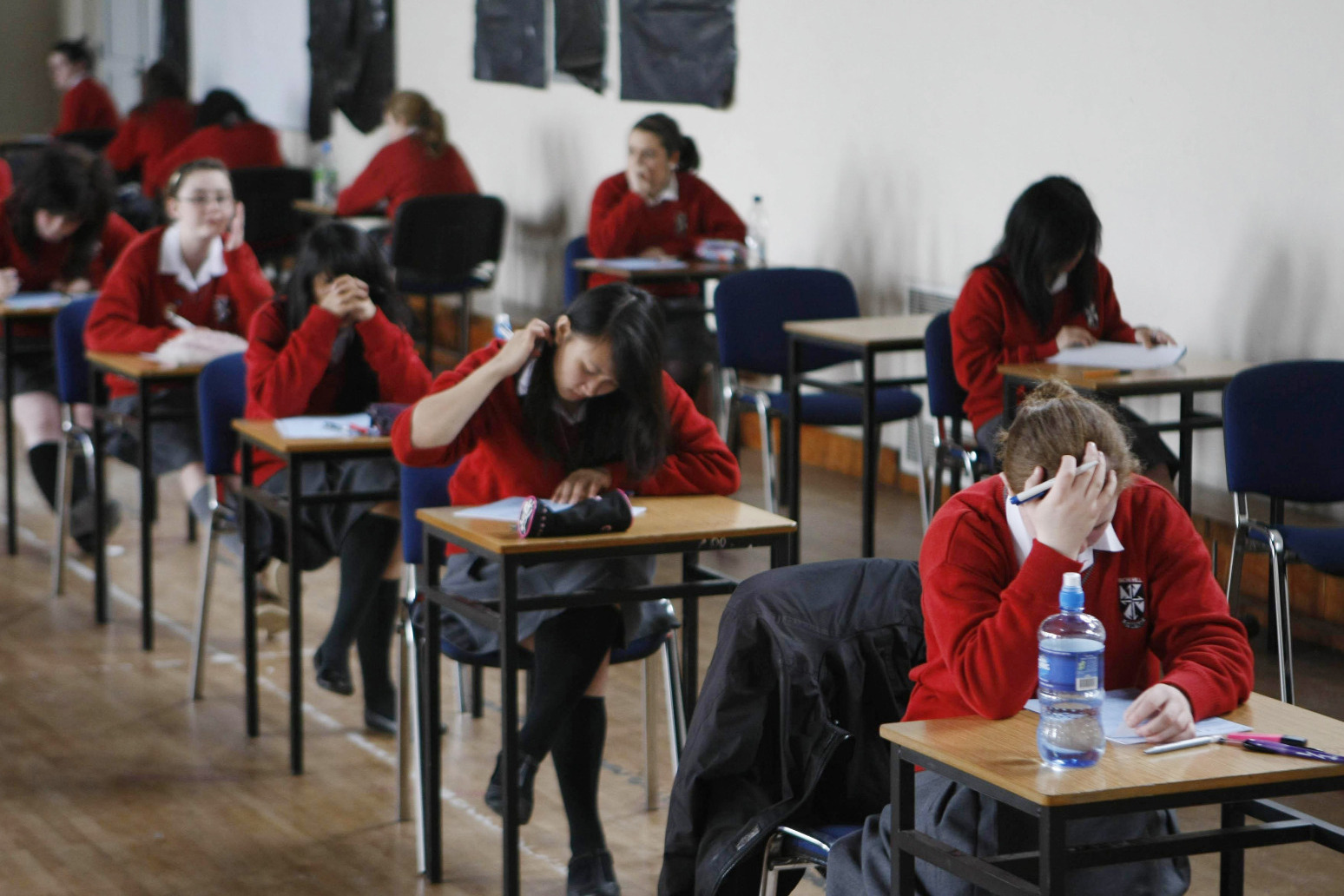
Headteachers call for advanced material on 2022 exams ‘as soon as possible’
The call has come from the NAHT school leaders’ union
Headteachers have called on the Government to review adaptations to GCSEs and A levels in 2022 in light of the disruption caused by the Omicron variant of Covid-19.
And they argue that advance information about the topics covered in papers should be released “as soon as possible”.
Currently, pupils in England will be offered a choice of topics in some GCSE exams, such as English literature, history, ancient history and geography, as well as exam aids next summer to make up for Covid-related disruption.
For subjects where a choice of topics is not provided, advance notice on the focus of exam content will be given in February to help with revision.
But on Tuesday, the NAHT school leaders’ union said the Government needs to review its plans to make sure exams are fair for this year’s GCSE and A level cohort, given the disruption caused by the virus.
“Advance notice information should be published as soon as possible – no need to wait until February 7 – to give teachers and students more information which may help them to plan learning and revision in the remaining time available,” said Sarah Hannafin, the NAHT’s senior policy advisor.
“Communications around the announcement will be vital, particularly to address the variation in the information being provided for different subjects and uncertainty about the impact of it for lower ability students.”
Ms Hannafin said that the Government “can and should do more”, and that there needs to be “a greater consideration of how the pandemic has affected learning and teaching this year – especially over the past few months”.
Ms Hannafin said a high level of absence amongst both teachers and learners is putting “huge pressure on students in exam years” and that the NAHT was hearing “more and more questions” about how fair it is for exams to go ahead.
The NAHT said the Government should review adaptations to exams “to ensure they go far enough to properly address the impact of the current circumstances which schools, teachers and students find themselves in”.
If exams do go ahead, it said the decision to publish performance data for schools should be reversed as it would “simply be a reflection on the impact of the pandemic on students and schools”.
Paul Whiteman, NAHT’s general secretary, said: “The Government has made it clear that it intends for exams to go ahead, but there needs to be more recognition that some students could be disadvantaged by the gaps in their learning due to Covid disruption – through no fault of their own or their school.
“If the Government doesn’t do more to acknowledge this, trust in the fairness of the examination process will falter.
Mr Whiteman said while some learners “have no doubt thrived”, there would also be many who had “struggled”, especially those from disadvantaged backgrounds.
Pupils and students will sit GCSE and A level papers in 2022 for the first time since 2019, with exams cancelled in 2020 and 2021 because of the pandemic, with teacher-assessed graded awarded instead.
Earlier in January, Education Secretary Nadhim Zahawi said: “My absolute commitment is that exams are going ahead… but we’re putting in mitigations to make sure that we recognise who have had their education disrupted.”
Those sitting GCSEs and A levels in 2022 will be awarded grades set at a midway point between 2019 standards – when full exams took place – and 2021, when teacher-assessed grades were awarded.
A Department for Education spokesperson said: “We understand the ongoing impact of the pandemic on students, which is why we set out clear plans for a wide range of exam adaptations to support students, which take into account expected disruption during this academic year.
“Students will soon get information on the focus of exams to help their revision, as well as choices of topics in other subjects, and equation and formulae sheets in some GCSE maths and science exams. In addition, grading this summer will not return to pre-pandemic levels immediately, recognising the challenges they have faced.
“At the same time, we have been helping schools to recruit supply teachers to manage staff absences, and provided more than 1.5 million laptops and devices for disadvantaged young people to learn remotely due to Covid.”
Published: by Radio NewsHub